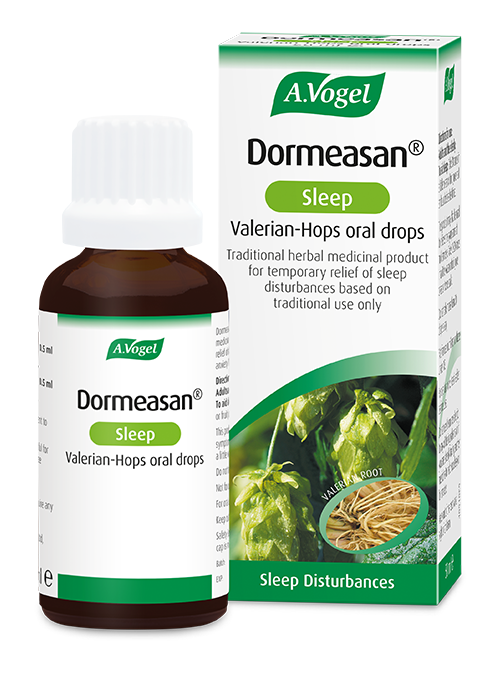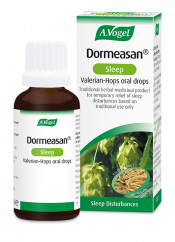What is sleep paralysis?
Sleep paralysis is the sensation of being conscious but unable to move any of your skeletal muscles. The experience can also be accompanied by hallucinations, which led many in the Middle Ages to blame the phenomenon on demons holding down the body. However, demons aside, most people usually find that sleep paralysis passes within a few seconds or minutes, although it can still be deeply upsetting and frightening to experience.

But why does it occur? Well there’s no official cause but more sleep scientists theorise that it’s related to REM sleep. During REM sleep your skeletal muscles are essentially frozen, unable to move, while your brain becomes more active – this is, after all, the phase of sleep where you are most likely to dream!
However, if you are waking up, sometimes you can become conscious during REM sleep, in which case you’ll find it difficult to move as your muscles are still locked in place. The hallucinations experienced by some during sleep paralysis are thought to be a result of your conscious mind overlapping with your unconscious mind so you start to experience dreams.
Why am I experiencing sleep paralysis
It’s thought that around 7% of the population will experience an episode of sleep paralysis at some point in their lives, although this figure is possibly much higher.1 While it can be frightening, generally sleep paralysis is nothing to be afraid of and, although there is no official cause, it is possible that some of us are more susceptible to the phenomenon than others.
- Poor sleep hygiene: Sleep deprivation is believed to be a trigger for sleep paralysis, with those not getting enough sleep (fewer than 6 hours a night) being associated with increased episodes of sleep paralysis, according to a review published in Sleep Medicines Review2
- Age: It’s believed that age could be a factor when it comes to sleep paralysis, with those between the ages of 10 and 25 being more susceptible
- Sufferers of sleep apnoea: Obstructive sleep apnoea is a common sleep disorder that occurs when the walls of the throat relax and narrow during sleep which can upset your breathing rhythm, causing you to wake up breathless during the night. Since your sleep is consistently being disturbed, it’s possible you may spend more time in REM sleep
- Medication: Certain medications, such as those prescribed for ADHD, can sometimes contribute towards sleep paralysis
- Oversleeping: Just as not getting enough sleep may trigger an episode of sleep paralysis, sleeping too much can have exactly the same results, particularly if you take long naps during the day
- Sleep position: Finally, it’s no secret that the position you sleep in can affect your overall quality of sleep. Sleeping on your back is sometimes not considered to be a healthy sleep position and in this case, most instances of sleep paralysis tend to appear when the individual is sleeping in this position.4
Is there anything I can do to prevent sleep paralysis?
Sleep paralysis can seem unavoidable – it has no officially recognised cause and it’s impossible to predict when it will occur. However, there are still some steps you can take to minimalize your chances of experiencing the phenomenon. As I’ve explained, there are certain risk factors that may affect your susceptibility so I would start by addressing these first!
Get into a regular sleep routine!
I really can’t emphasise this enough – it really is that important that you get into a good sleep routine! Keeping odd hours is sometimes unavoidable but when you can, try to get into a regular and consistent routine. Go to bed at the same time each night and try to get up at the same time each day, even on weekends. This will train your body to know when it’s time to sleep, making sure that you get enough hours each night.
Mind your position

Knowing the best position to sleep in can be tricky but if you suffer from a sleep disorder, such as sleep apnoea, or are pregnant, it might be worth avoiding sleeping on your back. Generally, sleeping on your left side is thought to be quite good for your health as it can reduce heartburn and acid reflux – one reason why pregnant women are often advised to sleep on this side!
Avoid sugary treats
Sugary treats before bedtime may cause your blood sugar levels to fluctuate during the night. When you do experience your inevitable blood sugar crash, it can take you out of deep NREM sleep and put you into REM sleep – the sleep phase where sleep paralysis is believed to occur. Instead, focus on healthy snacks that are full of fibre – remember, even fresh fruit juice can be high in sugar so it’s always worth putting a little bit of extra effort in!
Seek help
If you’re on medication or suffer from sleep apnoea and have noticed that you’re experiencing more and more episodes of sleep paralysis, I would consider speaking to your GP or doctor. They will be able to advise you about further treatment. It’s also important to note that, while sleep paralysis isn’t considered to be a serious problem, if it’s recurring it may be a symptom of larger problem, such as narcolepsy.
Remember to relax
Experiencing an episode of sleep paralysis can be scary but it’s important to remain calm. As unnerving as being unable to move your muscle can be, it is a passing problem so the best thing you can do is to try and relax. This will enable you to cope with the experience – you could even practice mindfulness techniques which encourage a sense of calm and objectiveness that should help you until you’re able to wiggle your toes again!
Try herbal helpers
Herbal sleep remedies are unlikely to help when it comes to sleep paralysis but they can support healthy sleep patterns, which can go a long way toward preventing sleep deprivation. Our gentle combination of Valerian and Hops helps to soothe the nervous system, promoting feelings of relaxation and making it easier for you to fall into a deep natural sleep. Dormeasan also has the additional benefit of not causing any next day grogginess unlike most traditional sleep remedies!
A.Vogel Dormeasan Sleep Valerian-Hops Oral Drops | Sleeping Aid | Extracts of Fresh Valerian Root
£5.49 (15ml) In Stock Get it tomorrow, 3rd July.









